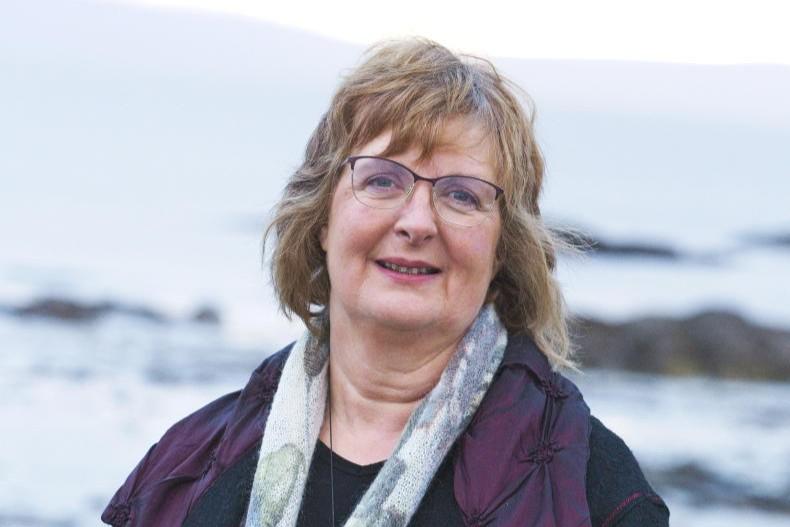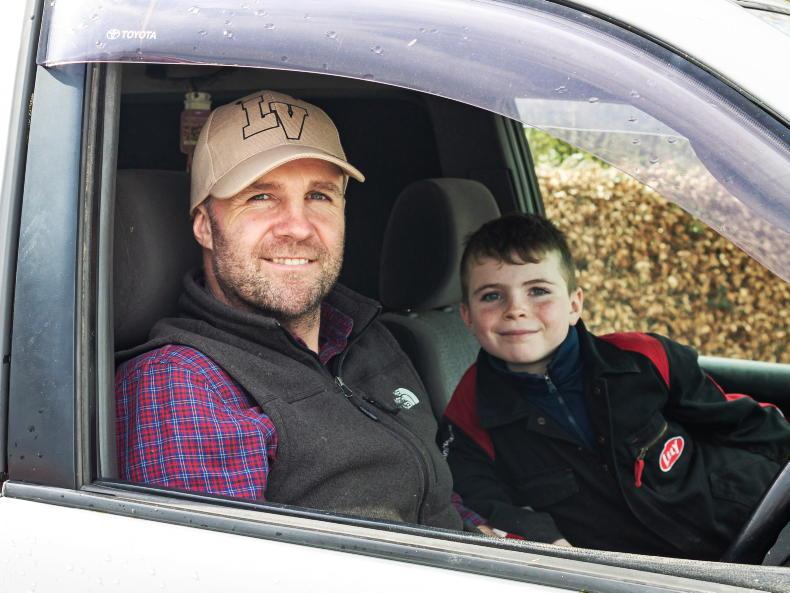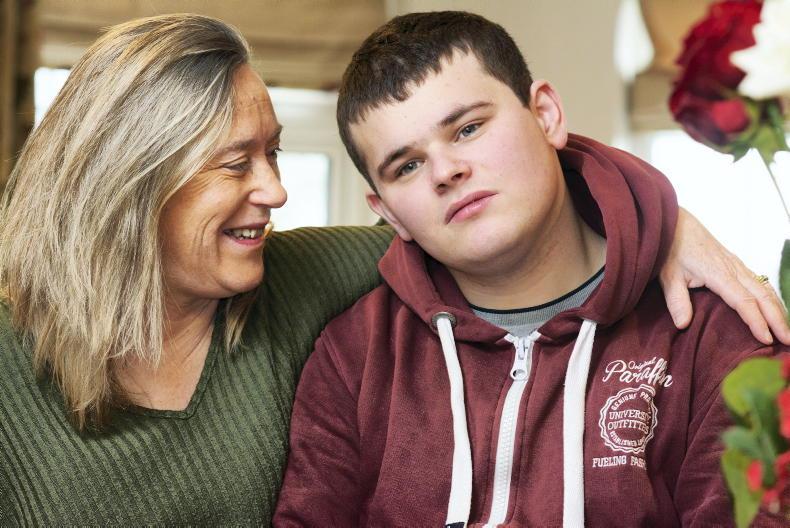Relationships are the largest predictor of our happiness and strongest determinant of our wellbeing.
Strong social connections provide emotional support, they reduce stress, give feelings of belonging, and that translates into positive physical health outcomes.
For children and young people with autism – who are often navigating a world that has been designed for neurotypical people – environments where they can relax, have fun and be themselves without a pressure to fit into typical social norms, are therefore critical for their wellbeing and confidence.
Motivated by a distinct lack of these kind of settings, parents of children and young people with autism are taking matters into their own hands, setting up social clubs across the country where their children can socialise and make friends.
Róisín Hogan, child and educational psychologist at St Gabriel’s Foundation, a charity supporting children and young adults with disabilities in Limerick, says she “cannot speak highly enough” about the benefits of social clubs.
Celebrating differences
“It’s being part of a community that celebrates differences. When children are valued for who they are, this contributes to their overall sense of worth and belonging.
“Some people with autism struggle with trying to understand the subtle nuances of social interaction, like unspoken rules, reading facial expressions, understanding idioms, engaging in spontaneous expectations or conversations. That really leads to feelings of isolation and even depression,” Róisín says.

Róisín Hogan, child and educational psychologist at St Gabriel's.
“Social clubs are supportive, understanding environments where individuals with autism can engage with peers who share similar experiences as them and form those meaningful connections. They’re being surrounded by peers who understand and accept them.
“They don’t have to worry about being judged for behaviours that might be considered different or about misunderstanding the social cues and feeling out of place.
“It’s such a common experience for people with autism that they have to mask who they are constantly on a day-to-day basis to fit in, and this is the one environment where they don’t have to do that.”
Benefits
Róisín says that masking can have serious mental health implications for individuals with autism, like high rates of depression, anxiety, post-traumatic stress symptoms, increasing suicidal ideation and autistic burnout.
“We need to allow children with autism to drop the mask and that’s where these groups come in.”
Social clubs are sensory-based environments, because people with autism also have an entirely different experience of their sensory system.
“Often sensory information that’s coming in is too strong. Some noises are louder, textures are more grating on their skin. Tastes are difficult as well. Many people struggle with a restricted diet. When you consider the sensory environment that surrounds children and adolescents with autism in mainstream school, it can be incredibly dysregulating for them to be exposed to that sensory input all day long.”
The community really got behind us. By January, we had opened another four clubs
In an effort to build connections and create a safe space for their own children to socialise, Claire Earley and Hilda Duignan set up a social club, Infinity Friends in Athlone, Co Roscommon two and years ago.
Where it began
Claire Earley has seven children and her youngest daughter, Sophia (11) has autism.
“I had an idea to start a Facebook group page for parents or carers of children or teens with autism in the Athlone area, just to bring the community together,” says Claire. She met Hilda on a countrywide Facebook group for parents with autism. Hilda has four children and her two youngest, Edie and Evan, have autism.
“We got chatting as we were both from Athlone, so Hilda came on board with me to start an Athlone group, and it snowballed from there. From the start, we were fully on board to do whatever we could in Athlone. We wanted an age group where our own children could take part, so we started with 12 children between the ages of seven and 12. We started on 19 September 2022. It was fantastic.”
Entirely self-funded and volunteer-led, it was donations from local companies, collection days, raffles and community fundraisers that enabled the group to buy equipment, toys and some games.
“The community really got behind us. By January, we had opened another four clubs,” says Claire. “We grew very, very quickly because the demand was there and it broke our hearts to put children on waiting lists.”
Permanent base
There are currently 89 children enrolled in Infinity Friends from the ages of 4 to 18 years old. Having originally set up in Monksland Community Centre, they now have a permanent base in Thomastown which is near Moore parish.
The 89 children are spread across nine different age groups who meet on different days of the week. “Tuesday, Wednesday and Thursday evenings are really for the older kids and Saturday and Sunday mornings would be for the tots and juniors,” explains Hilda.
‘This is our club’

Carmel Griffin, Laura Hammerton, Hilda Duignan, and Claire Earley of Infinity Friends, Athlone. \ David Ruffles
There are four women on the committee – Claire, Hilda, Laura Hammerton and Carmel Griffin – and one of the four of them is present at every group meeting. Parents also stay with their children throughout the session.
“We started the club for the children but it’s a lot of peer support for the parents as well, we didn’t realise that when we started. A lot of people don’t understand the challenges they are facing. Parents can speak to other people who have experienced something similar to them, signpost services, share different strategies that have worked for their child.
“I’ve had so many parents come to me and say, we’ve tried everything, and this has worked,” says Claire. “It’s because we’re not placing any demands on the children. If they want to sit down and play a board game with another child, the opportunity is there. But if they don’t, that’s fine too. They can play with whatever they want.
“They can come to Infinity Friends clubhouse and unapologetically be themselves. They’re not masking, they’re not trying to fit in.”
“The social club that we have created is a place that they can come and say, ‘this is our club’. If they have neurotypical siblings, their siblings have a choice of whatever sport they want – GAA, gymnastics, swimming, football. Whereas the autistic child in the family probably wouldn’t have a choice and would end up sitting at home without the opportunity to make friends and socialise.”
“We’ve had kids who have stayed for the year and then have been confident enough to go on to join other clubs like soccer and GAA. So, their time here benefited them. Before they’d never have had the confidence to do that.”
Days out
The children are also brought on outings and days out, trying activities like go-karting, bowling, horse riding and music therapy, and there are summer camps as well.

Katie, Infinity Friends, Athlone. \ David Ruffles
Parents play a monthly membership fee which helps to cover the rent of the building and pay for all the toys. Infinity Friends are also in the process of building a sensory room in the clubhouse.
Claire notes the difference that the group has made for her daughter, Sophia.
“My own little girl can go in and be herself. “She absolutely loves the club. She struggled in school socially and she has come on so much since Infinity Friends began.”
Laura’s daughter, Katie Hammerton (9) has been coming to the club for a few weeks and describes it as a “fun place”.
“I feel like it’s just a cool place where people can play, and I love playing with Sophia,” Katie says. “Sophia is my best friend here.”
“People with autism find the world harder so I feel like it’s easier to have a safe place where we feel like we belong somewhere. We all have different needs here and there’s loads of places where you can go. One room I go is where the tent is because it blocks out the noise and I don’t like loud noises,” Katie says, smiling.
See infinityfriends.ie
Relationships are the largest predictor of our happiness and strongest determinant of our wellbeing.
Strong social connections provide emotional support, they reduce stress, give feelings of belonging, and that translates into positive physical health outcomes.
For children and young people with autism – who are often navigating a world that has been designed for neurotypical people – environments where they can relax, have fun and be themselves without a pressure to fit into typical social norms, are therefore critical for their wellbeing and confidence.
Motivated by a distinct lack of these kind of settings, parents of children and young people with autism are taking matters into their own hands, setting up social clubs across the country where their children can socialise and make friends.
Róisín Hogan, child and educational psychologist at St Gabriel’s Foundation, a charity supporting children and young adults with disabilities in Limerick, says she “cannot speak highly enough” about the benefits of social clubs.
Celebrating differences
“It’s being part of a community that celebrates differences. When children are valued for who they are, this contributes to their overall sense of worth and belonging.
“Some people with autism struggle with trying to understand the subtle nuances of social interaction, like unspoken rules, reading facial expressions, understanding idioms, engaging in spontaneous expectations or conversations. That really leads to feelings of isolation and even depression,” Róisín says.

Róisín Hogan, child and educational psychologist at St Gabriel's.
“Social clubs are supportive, understanding environments where individuals with autism can engage with peers who share similar experiences as them and form those meaningful connections. They’re being surrounded by peers who understand and accept them.
“They don’t have to worry about being judged for behaviours that might be considered different or about misunderstanding the social cues and feeling out of place.
“It’s such a common experience for people with autism that they have to mask who they are constantly on a day-to-day basis to fit in, and this is the one environment where they don’t have to do that.”
Benefits
Róisín says that masking can have serious mental health implications for individuals with autism, like high rates of depression, anxiety, post-traumatic stress symptoms, increasing suicidal ideation and autistic burnout.
“We need to allow children with autism to drop the mask and that’s where these groups come in.”
Social clubs are sensory-based environments, because people with autism also have an entirely different experience of their sensory system.
“Often sensory information that’s coming in is too strong. Some noises are louder, textures are more grating on their skin. Tastes are difficult as well. Many people struggle with a restricted diet. When you consider the sensory environment that surrounds children and adolescents with autism in mainstream school, it can be incredibly dysregulating for them to be exposed to that sensory input all day long.”
The community really got behind us. By January, we had opened another four clubs
In an effort to build connections and create a safe space for their own children to socialise, Claire Earley and Hilda Duignan set up a social club, Infinity Friends in Athlone, Co Roscommon two and years ago.
Where it began
Claire Earley has seven children and her youngest daughter, Sophia (11) has autism.
“I had an idea to start a Facebook group page for parents or carers of children or teens with autism in the Athlone area, just to bring the community together,” says Claire. She met Hilda on a countrywide Facebook group for parents with autism. Hilda has four children and her two youngest, Edie and Evan, have autism.
“We got chatting as we were both from Athlone, so Hilda came on board with me to start an Athlone group, and it snowballed from there. From the start, we were fully on board to do whatever we could in Athlone. We wanted an age group where our own children could take part, so we started with 12 children between the ages of seven and 12. We started on 19 September 2022. It was fantastic.”
Entirely self-funded and volunteer-led, it was donations from local companies, collection days, raffles and community fundraisers that enabled the group to buy equipment, toys and some games.
“The community really got behind us. By January, we had opened another four clubs,” says Claire. “We grew very, very quickly because the demand was there and it broke our hearts to put children on waiting lists.”
Permanent base
There are currently 89 children enrolled in Infinity Friends from the ages of 4 to 18 years old. Having originally set up in Monksland Community Centre, they now have a permanent base in Thomastown which is near Moore parish.
The 89 children are spread across nine different age groups who meet on different days of the week. “Tuesday, Wednesday and Thursday evenings are really for the older kids and Saturday and Sunday mornings would be for the tots and juniors,” explains Hilda.
‘This is our club’

Carmel Griffin, Laura Hammerton, Hilda Duignan, and Claire Earley of Infinity Friends, Athlone. \ David Ruffles
There are four women on the committee – Claire, Hilda, Laura Hammerton and Carmel Griffin – and one of the four of them is present at every group meeting. Parents also stay with their children throughout the session.
“We started the club for the children but it’s a lot of peer support for the parents as well, we didn’t realise that when we started. A lot of people don’t understand the challenges they are facing. Parents can speak to other people who have experienced something similar to them, signpost services, share different strategies that have worked for their child.
“I’ve had so many parents come to me and say, we’ve tried everything, and this has worked,” says Claire. “It’s because we’re not placing any demands on the children. If they want to sit down and play a board game with another child, the opportunity is there. But if they don’t, that’s fine too. They can play with whatever they want.
“They can come to Infinity Friends clubhouse and unapologetically be themselves. They’re not masking, they’re not trying to fit in.”
“The social club that we have created is a place that they can come and say, ‘this is our club’. If they have neurotypical siblings, their siblings have a choice of whatever sport they want – GAA, gymnastics, swimming, football. Whereas the autistic child in the family probably wouldn’t have a choice and would end up sitting at home without the opportunity to make friends and socialise.”
“We’ve had kids who have stayed for the year and then have been confident enough to go on to join other clubs like soccer and GAA. So, their time here benefited them. Before they’d never have had the confidence to do that.”
Days out
The children are also brought on outings and days out, trying activities like go-karting, bowling, horse riding and music therapy, and there are summer camps as well.

Katie, Infinity Friends, Athlone. \ David Ruffles
Parents play a monthly membership fee which helps to cover the rent of the building and pay for all the toys. Infinity Friends are also in the process of building a sensory room in the clubhouse.
Claire notes the difference that the group has made for her daughter, Sophia.
“My own little girl can go in and be herself. “She absolutely loves the club. She struggled in school socially and she has come on so much since Infinity Friends began.”
Laura’s daughter, Katie Hammerton (9) has been coming to the club for a few weeks and describes it as a “fun place”.
“I feel like it’s just a cool place where people can play, and I love playing with Sophia,” Katie says. “Sophia is my best friend here.”
“People with autism find the world harder so I feel like it’s easier to have a safe place where we feel like we belong somewhere. We all have different needs here and there’s loads of places where you can go. One room I go is where the tent is because it blocks out the noise and I don’t like loud noises,” Katie says, smiling.
See infinityfriends.ie












SHARING OPTIONS